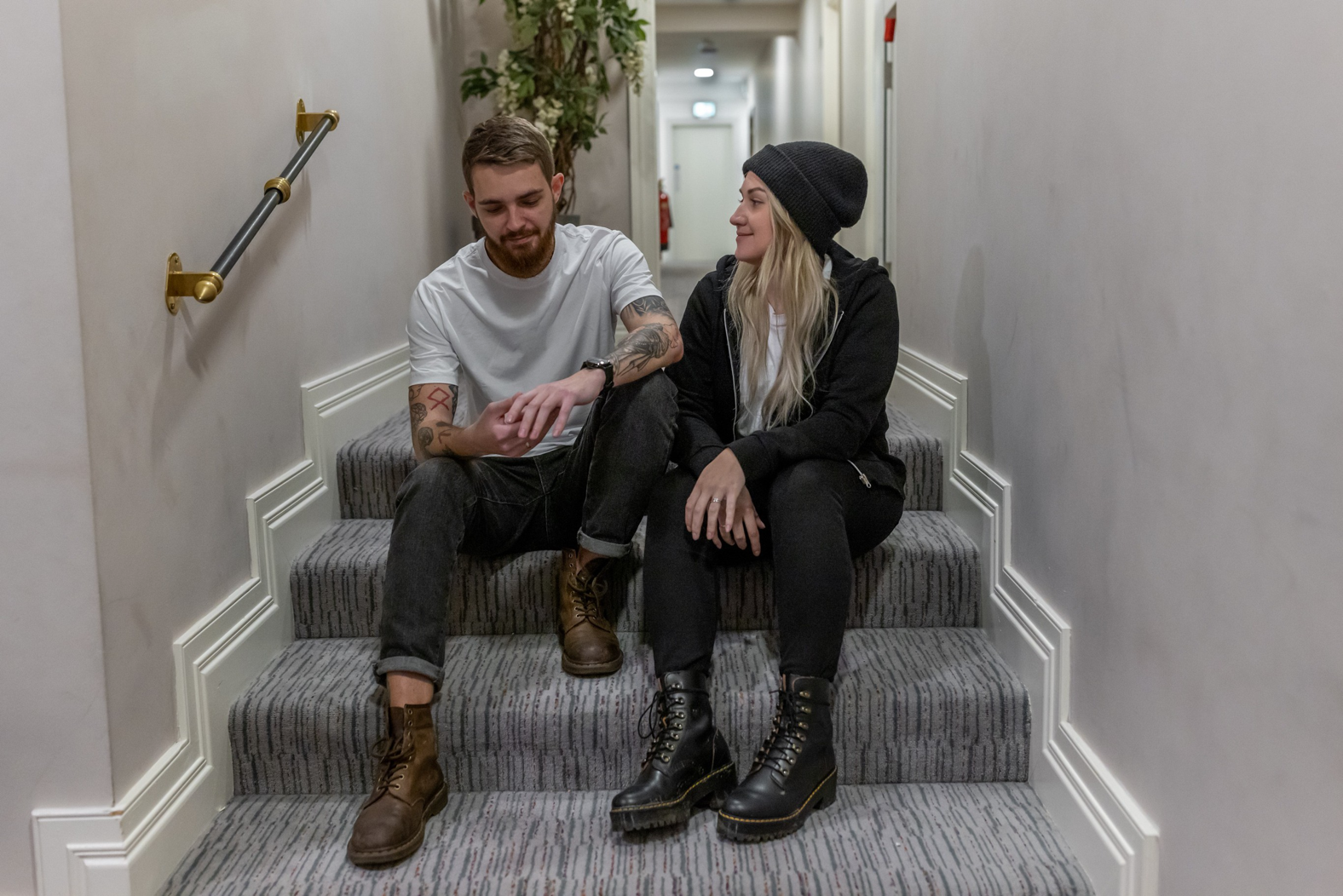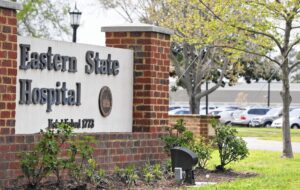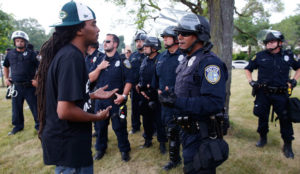In Castlebar, population 12,000, hotels are teeming with Ukrainians who struggle to find work and worry how they’ll afford to live if their hosts’ generosity runs out
PAUL WALDIE
Nestled along Ireland’s rugged west coast, County Mayo is a popular destination for tourists looking for a quiet getaway. But these days the area’s many resorts aren’t filled with nature-seeking visitors. Instead, almost every room is occupied by thousands of refugees from Ukraine.
Ireland has been one of the most welcoming countries in the European Union for Ukrainians fleeing Russia’s invasion. The government provides Ukrainian refugees with work visas, lodging, meals, health care, English classes and €208 (nearly C$300) a week, plus child benefits.
The country has taken in more than 62,000 Ukrainians so far and that number could climb to 100,000, proportionately higher than most EU countries, considering Ireland’s population is five million.
Many of the refugees have been relocated to counties where hotels are plentiful. Ireland’s persistent housing shortage has forced the government to pay hoteliers to house Ukrainians and almost every room is booked in Castlebar, the largest city in Mayo.
But strain is beginning to show. Many residents in Castlebar, which has a population of 12,000, have grown wary about the increasing number of refugees in town.
And while the Ukrainians are grateful for the support, they say finding work or a permanent place to live is next to impossible.
“It’s very hard to find a job, especially part-time,” said Julia Shapovalova, who is from Kharkiv and came to Ireland three months ago with her four-year old son, Mark. They are among 74 refugees living in Castlebar’s Royal Hotel and Theatre and almost no one has found work.
Ms. Shapovalova can’t afford daycare and she’s been looking for a part-time job while her son is at school. Even though she speaks English and worked as a bank manager in Ukraine, nothing has turned up.
She and the other refugees also worry about how long they can stay at the Royal.
Government contracts with hotel owners vary, but most want to return to their normal tourist trade in April. That will leave the Ukrainians searching for a place to live in an area where vacancy rates are low and rents run as high as €1,300 for a two-bedroom apartment.
Anastasiia Svizina, 24, has been frustrated since arriving at the Royal four months ago with her husband, Yevhen, who is 28. They both speak English and worked in the technology sector in Mariupol. But they can’t land a job in Castlebar.
“People around us are always smiling and saying, ‘You know English very well and you will find a job easily.’ But the reality is not so positive,” Ms. Svizina said. “We’ve applied, we sent our CVs and there is no answer. I don’t know why.”
Like a lot of Ukrainians in Ireland, the couple arrived after a perilous journey. Their apartment building in Mariupol was destroyed after Russians troops occupied the city in April and they worried that Mr. Svizina could be conscripted into the Russian army. With access to Ukraine blocked, they travelled through Russian-held territory to Georgia.
Mr. Svizina nearly didn’t make it. He was stopped by Russian security officers and questioned about tattoos on his arms. “They thought it was Nazi stuff,” he said. “They think that we are all in Ukraine Nazis.” He managed to convince them that the figures were from Norse mythology.
From Georgia they headed to Turkey with the help of a friend but decided to move on to Ireland to take advantage of their ability to speak English.
They plan to keep searching for work in Mayo. In the meantime Ms. Svizina is taking classes in web design while Mr. Svizina learns the programming language Python.
People in Castlebar have been largely supportive of the Ukrainians but there is grumbling about how many more will come. The city and the surrounding towns have taken in more than 2,000 refugees so far.
“From the community point of view, we always want to help people,” said Michael Kilcoyne, the mayor of Castlebar. “But the community also wants to know who these people are – and what’s the plan? How long are they going to be here? If you bring in that many people, and you don’t give us any resources, then you are actually taking resources away from people who are here.”
A group of residents from nearby Breaffy recently confronted local authorities about refugees staying at the sprawling Breaffy Woods Hotel. The resort is housing nearly 500 Ukrainians and 200 refugees from other countries including Syria.
In a recent statement, the local council said there had been “some community disquiet” about the refugees. “We have been acutely aware that this unease has intensified over the last number of weeks,” it added.
Michael Haverty, who lives in the area, said residents are worried about overcrowded schools and some have questioned why the government is offering so much help to Ukrainians when there are local needs.
“I have a lot of sympathy for the Ukrainians,” Mr. Haverty said as he picked up his two granddaughters from school. “But there has been talk about how there are a lot of Irish people who are homeless and need help too.”
Lily Luzan is among those feeling the brunt of the backlash. She came to Castlebar 14 years ago as a translator from Belarus, where she grew up 60 kilometres from the Chernobyl nuclear plant. In 2016, Ms. Luzan, 42, set up a charity called Candle of Grace, which brings children living in areas contaminated by Chernobyl to Ireland for summer holidays.
When Russia launched its invasion of Ukraine last February, Ms. Luzan shifted the charity’s focus and began helping Ukrainians. Because of her Eastern European background she became the unofficial point person for Castlebar’s Ukrainian relief efforts.
In the early days of the war people in town were eager to help. Donations to the charity poured in and Ms. Luzan had around 200 volunteers. The community was so united that Ms. Luzon received warm applause when she marched with a group of Ukrainians in the city’s St. Patrick’s Day parade last March. “Everybody was crying,” she recalled. “Ukrainian people were crying because they didn’t expect such welcome. And Irish people were crying because they were so happy to see them.”
The mood has changed. Donations have fallen off and the charity is down to a couple of dozen volunteers. Ms. Luzan said the government didn’t prepare the community for the rising number of refugees and many people now see her as the face of the influx. “I said to the government, ‘If you don’t have a plan then people around here will be throwing stones at me’. And this is what’s happening.”
Despite the challenges, many refugees are eager to stay in Mayo. “I think it’s the perfect place,” said Dasha Chernenko, a 31-year-old lawyer from Odesa. She came in October and lives with 180 refugees at the Pontoon Bridge Hotel on the shores of Loch Cullin. She’s working part-time at the property and hopes to practice law one day in Ireland.
In a parking area next to the lake, Tatiana Halan watched her eight-year old daughter, Virina, ride a bicycle. They came at the end of September from Lviv, and Ms. Halan is happy to be away from the stress of trying to get through the winter in Ukraine without regular power. She works in the hotel kitchen and shares one room with her three children. Even though the hotel is cramped and far from the nearest town, Ms. Halan is glad to be in Ireland. “Here at least no bombs are falling,” she said.




